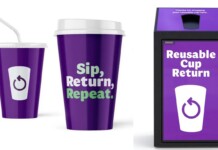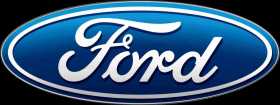Ford, Coca Cola, and Bayer, among other companies, actively demonstrate they care about people and the planet. Here are some examples of how corporations are contributing to society and helping the environment. Even Wal-Mart is making improvements to benefit the planet.
Ford is making available educational materials to teachers and schools as part of its Ford Partnership for Advanced Studies (Ford PAS), enhancing student learning in 26 states across 300 sites.
The Ford Motor Company unveiled in June a course of study in energy consumption and conservation. The program includes issues related to both fossil fuels and alternative energy sources—from solar to hydrogen to nuclear energy. In the new course teachers have the ability to pick and choose from four, four-week modules. The first module is an introduction to the scientific concept of energy and how stored energy is released in order to fuel human activity. The other three modules can be used interchangeably to explore science concepts, such as energy transformation or photosynthesis. They help students understand the relevance of green concepts within the world.
Teachers and schools interested in using the energy course can download the curriculum for free at www.fordpas.org.
Changing Operations to Go Green
![]() Coca-Cola is focused on efforts to improve the environment in three areas: water use, packaging, and energy use.
Coca-Cola is focused on efforts to improve the environment in three areas: water use, packaging, and energy use.
Coca-Cola’s initiative called Global Water Stewardship applies new technology to improve the efficiency of its own water usage and it has seen a 4% reduction during a period where volume grew at 4%. In packaging 85% of Coca Cola’s materials are now 100% recyclable and Coca Cola is also addressing the challenge of recovering the recyclable materials out of the general waste system. For example, in Australia it is partnering with 50 local councils and a number of public venues and retail outlets to set up and run public recycling trial programs. To reduce its own energy usage, Coca-Cola has set a goal to eliminate 700,000 tons of carbon-dioxide usage by 2010, “the equivalent of taking 150,000 cars off the road.”
Interesting to note, the bulk of the Coca Cola’s energy consumption comes from vending machines and coolers, which combined, create three times as much greenhouse gas emissions as the company’s manufacturing plants, and five times as much as its entire transport fleet.
 Between 1990 and 2007, the Bayer Group lowered its absolute carbon emissions by 37 percent. In June, 2008 the Bayer Group reaffirmed it’s commitment to sustainable development by announcing its absolute greenhouse gas emissions will remain at the present level through 2020 despite production growth. To achieve this Bayer has designed a Climate Check Tool for its operations. In the pilot involving just 5 German plants, Bayer identified CO2 reduction potential of roughly 10 percent and it hopes to find similar opportunities in their vast operations.
Between 1990 and 2007, the Bayer Group lowered its absolute carbon emissions by 37 percent. In June, 2008 the Bayer Group reaffirmed it’s commitment to sustainable development by announcing its absolute greenhouse gas emissions will remain at the present level through 2020 despite production growth. To achieve this Bayer has designed a Climate Check Tool for its operations. In the pilot involving just 5 German plants, Bayer identified CO2 reduction potential of roughly 10 percent and it hopes to find similar opportunities in their vast operations.
 Felix Rey, a major New York handbag and accessories company founded in 2001, has joined Carbonfund.org to offset its carbon footprint and to help end the global climate crisis. Because shipping is an integral part of the business, Felix Rey is donating carbon offset dollars to offset its sea and air freight shipping. The contributions Felix Rey is making are heavily focused on reforestation projects in Nicaragua and Louisiana.
Felix Rey, a major New York handbag and accessories company founded in 2001, has joined Carbonfund.org to offset its carbon footprint and to help end the global climate crisis. Because shipping is an integral part of the business, Felix Rey is donating carbon offset dollars to offset its sea and air freight shipping. The contributions Felix Rey is making are heavily focused on reforestation projects in Nicaragua and Louisiana.
Leading catalyst maker Albemarle Corporation is continuing an aggressive focus on sustainable business practices by investing in a new process that is expected to eliminate more than 80 percent of the process-related waste at its main plant in Pasadena, Texas. The waste is associated with the production of BEM, an essential component in the manufacture of two of the world’s most widely used plastic resins. Expected to be operational in the first quarter of 2009, the new process will significantly reduce waste by recycling solvent from the process waste and making it available for reuse, and also by converting the residual solids to a material suitable for onsite disposal.
![]() Through its real estate division Wal-Mart has committed $35 million to its partnership with the US National Fish and Wildlife Foundation to create “Acres for America.” As a form of carbon offset initiative this effort seeks “to conserve at least one acre of priority wildlife habitat for every acre developed for company use.”
Through its real estate division Wal-Mart has committed $35 million to its partnership with the US National Fish and Wildlife Foundation to create “Acres for America.” As a form of carbon offset initiative this effort seeks “to conserve at least one acre of priority wildlife habitat for every acre developed for company use.”
Wal-Mart also has constructed three Environmental Demonstration Stores that utilize some of the cutting-edge possibilities in energy-efficient and environmentally-friendly building construction. One of these stores is the Las Vegas SupeCenter opened in March that uses new cooling technology to cut overall energy use by up to 45 percent The new Wal-Mart green stores include a recycled asphalt parking lot, a futuristic HVAC system, electric-car charging stations, high-performance skylights, and a gray-water plumbing system that “captures water from the parking lot and roof for treatment and reuse as landscaping irrigation water.”
Wal-Mart has already retrofitted energy-efficient lighting systems in approximately 800 of its stores to date, which will reduce CO2 emissions by 274,000 tons annually.
We should applaud these efforts in order to encourage more corporations to take seriously the stewardship of our earth.





















I think we as people should stop fighting corporations. They deserve praise doe what they are doing. This way they will likely do more of it. Of course we need to hear what they are doing. And services like GNN help do this. We just need GNN to be bigger – or for other news to report good news. Carrots work better than sticks. Esp. when we try and truly understand the people, see things as they do.
We are all in this together.
Great post jmatz.